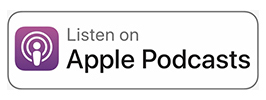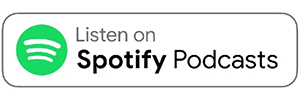Is homeownership possible with credit card debt?
Inflation is clearly hitting Americans hard. Federal Reserve data shows consumers racked up a jaw-dropping $25 billion in debt in September, capping the fastest nine-month surge of debt the nation’s ever seen.
“It’s a telltale sign that people in our country are struggling with inflation,” mortgage expert Shivani Peterson explained on a recent episode of The Mortgage Reports Podcast. “As everything goes up in cost, people are probably using their credit cards to survive.”
If you’re one of the many Americans who has turned to credit cards in recent months, it could impact your ability to secure a home.
Wondering if you can still buy a house with credit card debt? Here’s how Peterson recommends managing your debts.
Verify your home buying eligibility. Start hereListen to Ivan on The Mortgage Reports Podcast!
Know your habits.
First, be prepared to manage your spending. As Peterson explains on the podcast, credit cards aren’t inherently bad. It’s all in how you use — or misuse — them.
“Using credit cards is not a bad thing,” Peterson says. “If you are very responsible with credit cards, live within your limits, and pay it off every month, then a credit card is a great way to accumulate points to travel for less cost and get cash back. They also build your credit scores, and they help us, as lenders, understand how you manage debt.”
If you spend too much or fall behind on payments, though, credit cards are another story.
“If you tend to overspend, then credit cards probably aren’t the safest strategy in your financial toolbox,” Peterson says.
Keep your balances low.
You should also aim to keep your credit utilization low — meaning only use a small percentage of the total credit line you have available.
“You want to keep your utilization at a certain percentage to keep your credit score high,” Peterson says. “That percentage is between 30 and 50%.”
So if your total credit line is $10,000, you shouldn’t carry a balance of more than $5,000, but ideally under $3,000 — at least if you’re hoping to buy a house.
Keep your old cards open.
If you pay off a card balance in full, it can be tempting to close the card for good (no more temptation to spend, right?)
Actually, if you’re looking to maximize your credit score, closing long-running accounts can hurt you. That’s because credit history — or how long you’ve had your accounts — makes up about 15% of your total credit score.
“Do not close those credit cards as you pay them off and down,” Peterson says. “Just leave them open. Keep it at home and not in your wallet, so you won’t be tempted.”
You should also be sure the card doesn’t have an annual fee that will sneak up on you, as it could hurt your credit score if you don’t stay on top of it.
“if you have an annual fee sneak up on you on a card you haven’t used in two years, you may not pay that fee, and you’ll have a balance of like $200 for the annual fee sitting on your credit card,” Peterson says. “And then, all of a sudden, you’re getting 30-day late notices on this balance.”
Check your current home buying options. Start herePay credit cards off with lower-interest options.
Finally, think about paying off your credit cards with lower-interest products. This might mean taking out a debt consolidation loan or getting a balance transfer card.
If you already own a home, there are other options to explore. While the days of cash-out refinancing with ultra-low rates are gone, products like home equity loans and home equity lines of credit could work. These tend to have much lower rates than credit cards and can let you use your home equity to consolidate debt affordably.
Just make sure you know the details of the HELOC if you choose that route.
“It’s important to note that interest rates on a home equity line of credit are directly tied to the Fed funds rate, which is the rate that they have been using to combat inflation — and by using I mean increasing,” Peterson says. “So, if you’re going to take out a HELOC, you want to be careful that the interest you’re going to pay on the HELOC is less than your credit cards. Typically it is.”
A silver lining to rising credit card debt
Soaring credit card debt is hardly a good thing, but according to Peterson, there could be a silver lining to it all.
“The thing about credit cards is they’re not unlimited. There are limits on those credit cards, and once people hit those limits is when we could see spending dramatically halt,” Peterson says.”It could be that we’ll see inflation numbers come down in line with people hitting their credit card limits.”
Still curious if you can buy a house with credit card debt — or whether you can get a loan at all — connect with a lender. Preapproval is often free and will give you all the answers you need to start your home buying journey.
Time to make a move? Let us find the right mortgage for you


